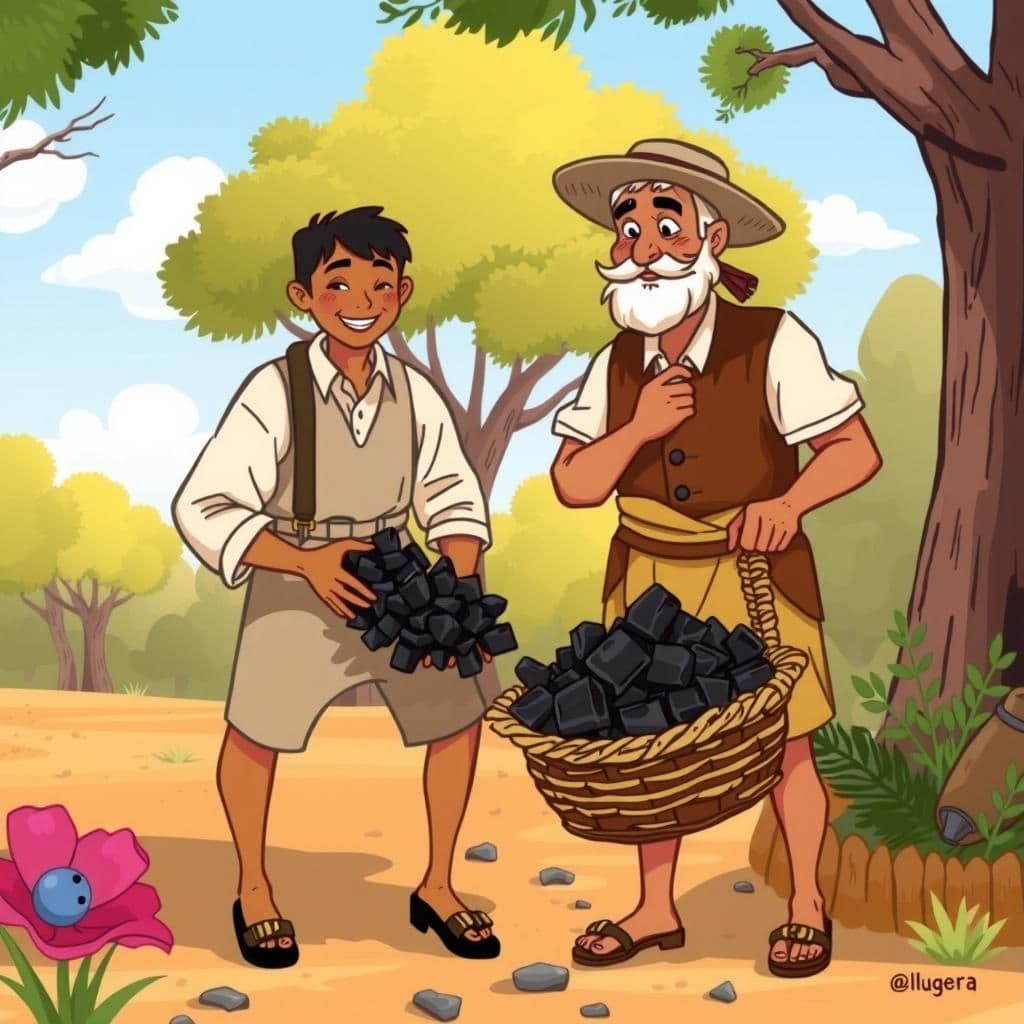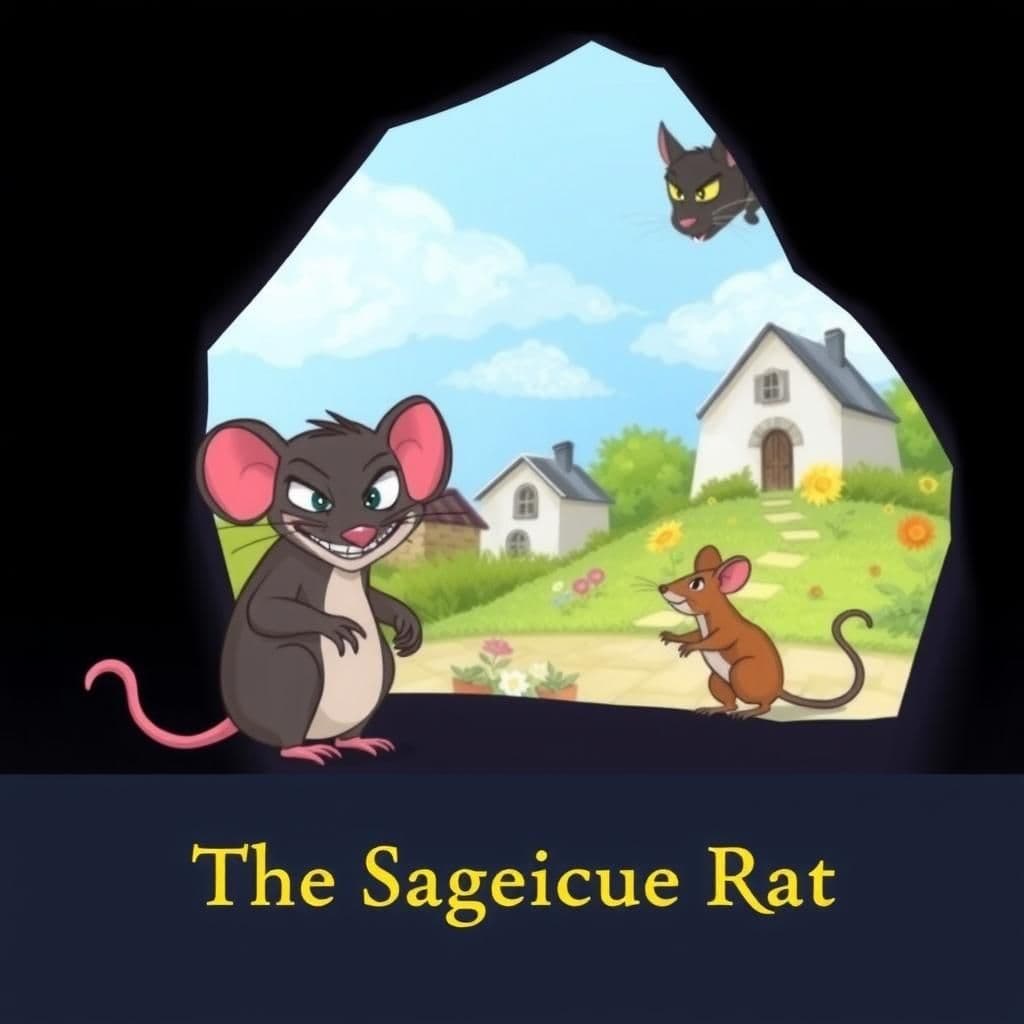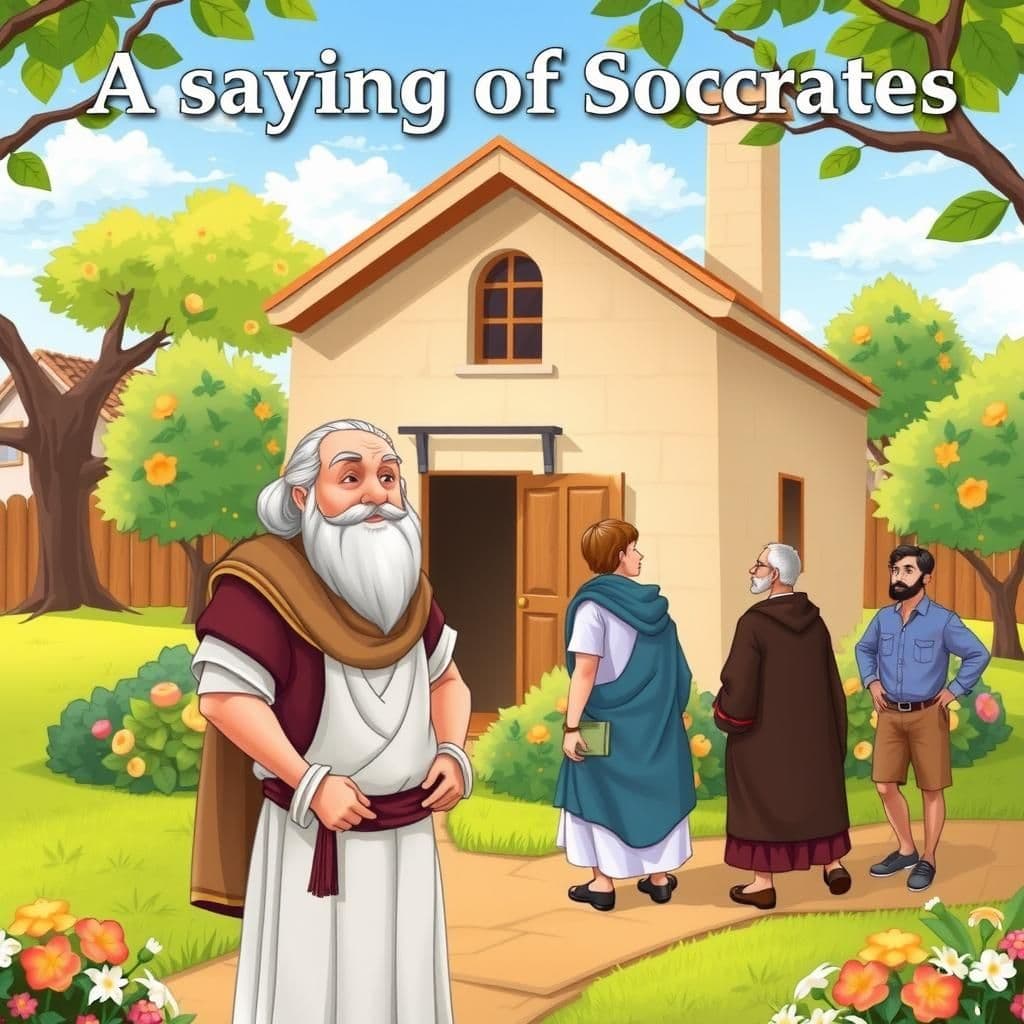The Charcoal Burner and the Fuller
In the quick moral story "The Charcoal Burner and the Fuller," a charcoal-burner invites his friend, a fuller, to live with him to save on expenses. However, the fuller declines, explaining that their trades are incompatible, as the charcoal-burner's work would negate his efforts to whiten fabric. This culturally significant tale emphasizes that individuals with opposing natures or interests may struggle to coexist harmoniously, making it a valuable lesson in small moral stories for kids.

Reveal Moral
"The moral of the story is that incompatible traits or lifestyles cannot coexist harmoniously."
You May Also Like

The Two Frogs
In this moral story, two frogs discuss the need for one to relocate from a dangerous gully to a safe pond for better resources and safety. Despite the warnings, the stubborn gully frog refuses to leave his familiar home, ultimately leading to his demise when a wagon crushes him. This short tale serves as an educational reminder that stubbornness can result in one's own downfall, making it a valuable life-lesson moral story.

The Sagacious Rat
In "The Sagacious Rat," a clever rat deceives his friend into believing he is honored by his company, leading him to exit their hole first and fall victim to a waiting cat. This short and sweet moral story illustrates the dangers of misplaced trust and the cunning nature of deceit, making it a valuable addition to childhood stories with moral lessons. Ultimately, it serves as a poignant reminder of the importance of being cautious in whom we place our trust, a theme relevant for moral stories for class 7.

A Saying Of Socrates
In this wisdom-packed moral story, Socrates faces criticism for the size and design of his new house, as many claim it is unworthy of him. However, he wisely reflects that the house is actually too large for his few true friends, highlighting the rarity of genuine friendship amidst the many who profess to be friends. This classic moral story serves as a timeless lesson for students about the true nature of companionship, making it ideal for moral stories for class 7.